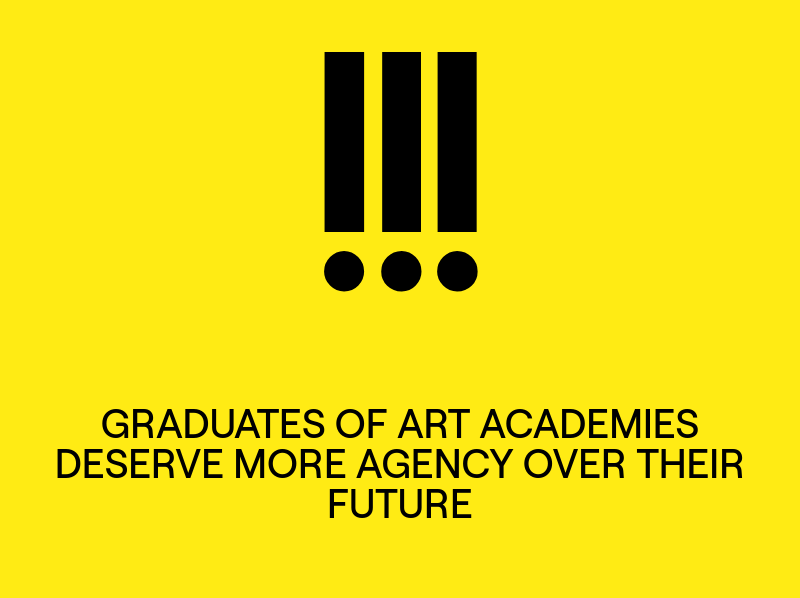
Last week I signed Platform BK’s open letter entitled “Graduates of art academies deserve more agency over their future” without hesitation. Addressing the executive boards of Dutch Art academies, the letter argues that education should prepare students for “the unruly reality of the cultural sector’s job market”.
A four-point plan is laid out: 1) developing post-precarity courses; 2) support social engagement and self-organization; 3) provide insight into the wolrd after the academy; 4) involve students in institutional developments.
The letter argues that general response to the issue of labor is two-folded: cultural entrepreneurship on the one end of the spectrum, and art autonomy on the other. The first can be understood as a passive adoption of a market logic (neoliberal, if you will) within education; while the latter is a form of romanticized detachment from the material reality of artists and designer careers’.
A previous version of the letter advocated for an “economically responsible art education”. The big question is: how do we define economic responsibility? Here, I’d like to give a pointer towards a possible answer, linked to point 3 of the letter.
Economic responsibility is not just financial literacy. Sure, students need to know how to write invoices, but economic responsibility goes beyond that. One way in which art academies can be more economically responsible is by strengthening the research into the lives of their students after graduation. The data available is often fragmented, hard to find, superficial, too broad (on the scale of a country or even a continent) and frequently comes from the work of students themselves who use their thesis time for this kind of inquiry. Furthermore, exceptionalism is the norm: cherry-picked successful alumni are invited to give career tips to young students, reinforcing biased representations of professional fulfillment. Instead of externalizing surveys and cherry-picking success, art academies should be the ones that dedicate in-house resources to develop a rigorous, localized picture of economic life after graduation.
Also published on Medium.
